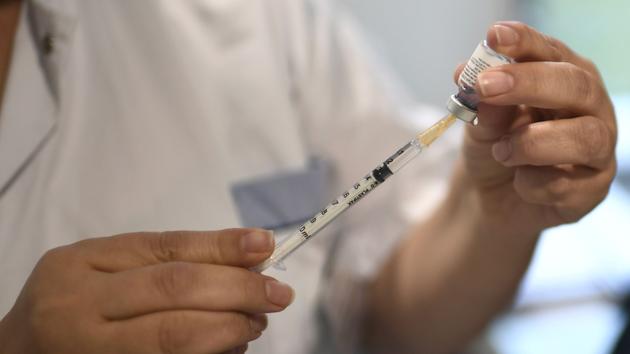Patrick Zylberman is emeritus professor of health history at the École des Hautes Etudes en Santé Publique. He is notably the author of
Tempêtes microbiennes.
Essay on health security policy in the transatlantic world
(Gallimard, 2013) and
The vaccine war
(Odile Jacob, 2020).
FIGAROVOX.- By the speed of its development and its worldwide distribution, does vaccination against the coronavirus represent a new page in the history of vaccination?
Patrick Zylberman.-
mRNA vaccines are a technology that researchers have been working on for more than ten years.
To hold that the vaccines against Covid-19 have been developed in a few months is therefore a mistake.
What can be said is that they were (re) directed against the coronavirus in just under a year, with the basic technology already well known.
The worldwide dissemination of vaccine formulas is not an absolute novelty either.
The BCG (first vaccinations of babies at the Charité hospital in Paris in 1921) is there to demonstrate it.
Example among many others.
We could also cite the Salk (1954-55) and Sabin (1957) vaccines against polio.
First of all, of course, the Jenner vaccine against smallpox (1796), which traveled around the world between 1966 and 1977 (worldwide campaign to eradicate smallpox) was fatal to the virus.
Distrust against vaccination: two officials, the state and public opinion.
Are technological innovations permanent in the history of vaccines, or is it crises that allow for sporadic progress?
In the history of vaccines, research is constant.
Since Jenner, experimenters have been concerned with innovative devices (more efficiency and more safety) as well as with formulas that make it possible to counter the spread of new viruses or bacteria.
For safety, we can cite the end of smallpox vaccination from arm to arm (risk of transmission of vaccine syphilis) around the years 1890-1900.
For efficacy, the very safe and highly effective measles vaccine in the 1960s. Crises can accelerate progress, and there is indeed concern about research in times of crisis, but research has its own timeline .
Distrust against vaccination: two officials, the state and public opinion.
How do you explain the distrust of the Pays de Pasteur with regard to vaccination?
Distrust against vaccination: two officials, the state and public opinion.
For about thirty years, at least since 1998 (case of vaccination against hepatitis B), the State has deserted the debate.
His silence has undoubtedly earned permission for the population to neglect vaccination.
As early as 2006, in fact long before, this negligence appeared in surveys.
Moreover, public opinion is often - in its matters - a follower of a vulgar Marxism: vaccination is only to enrich laboratories, etc.
Which does not faithfully reflect his behavior.
Thus 80% of babies were vaccinated by at least 8 out of the eleven valences when the law on the eleven compulsory pediatric vaccinations was adopted by the parliament on November 30, 2017. In addition, each in this country chooses his sufferer vaccine : influenza, hepatitis B win the most hated award.
The "real" anti-vaccines, outright, are not legion, between 2 and 3% maximum in the opinion.
She swallows up the speeches without always putting her actions in line with her fantasies.
Is it true to say that vaccination has already eliminated several diseases (smallpox, cholera, etc.) in the past?
Yes, vaccines are responsible for the disappearance, not of germs (the smallpox virus being an exception), but of the incidence of some of the most dangerous infectious and contagious diseases: measles (503,000 cases / year before vaccination in the USA ; 37 in 2002), congenital rubella (823 cases / year vaccination; 3 cases / year in 2002), tetanus (1,300 cases per year before vaccination; 22 in 2002), pertussis (147,000 before vaccination; 8300 in 2002).
Surveillance is nevertheless essential: between 2008 and 2015 we saw the offensive return of measles due to insufficient vaccination coverage.
For the why and how of vaccine hostility, I would like to refer you to my book,
The vaccine war
, published by Odile Jacob last June.









